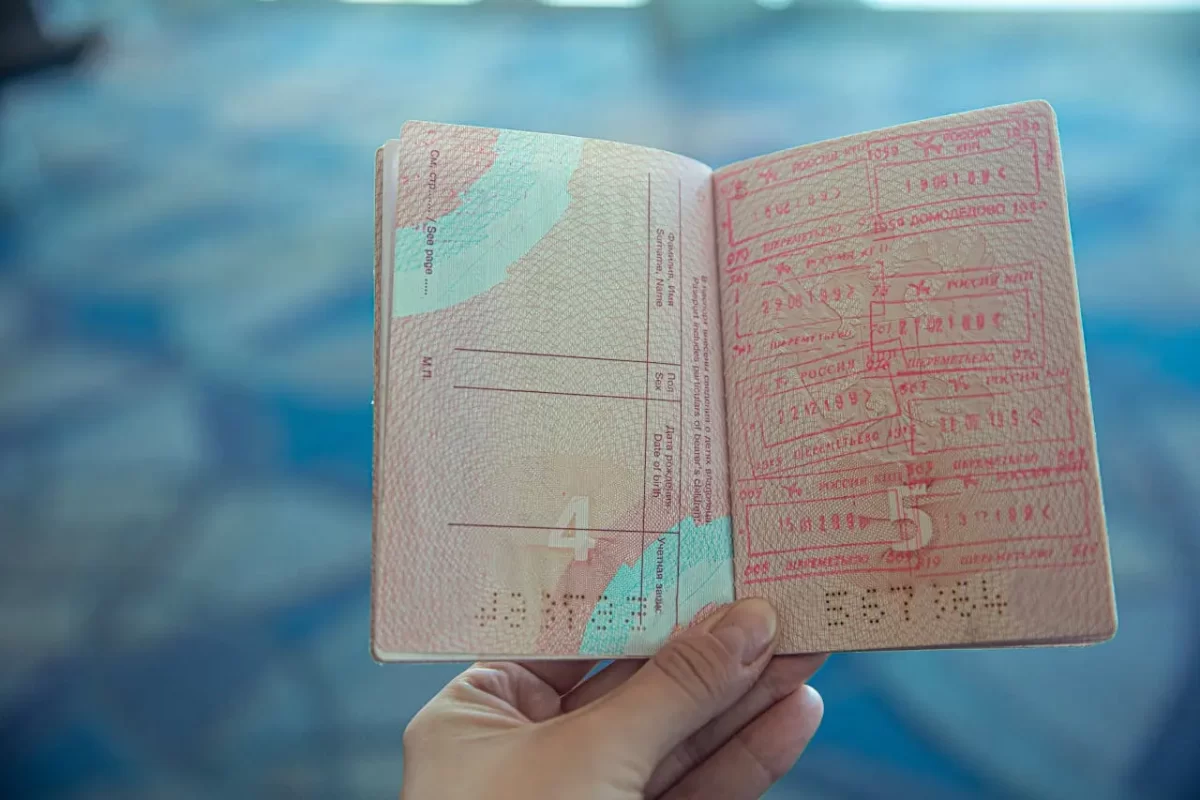Labor laws in Brazil
Brazil has one of the most regulated labor environments in Latin America. Companies that want to hire employees in Brazil must be fully aware of the country’s complex employment laws to ensure compliance and avoid costly penalties. This article provides a detailed overview of the key labor laws in Brazil, from statutory rights to hiring and offboarding employees.
If you’re looking to navigate Brazil’s labor laws while expanding your team, this guide is essential. And if you want to simplify the hiring process, Europortage’s Employer of Record (EOR) services in Brazil offer a compliant and seamless solution
Key Labor Laws in Brazil: What You Need to Know
Brazil’s employment laws are comprehensive and largely employee-friendly. The primary sources of labor regulation in Brazil include the Consolidated Labor Laws (CLT), the Brazilian Federal Constitution, and various decrees and regulations established by the Ministry of Labor and Employment. Together, these laws form the backbone of Brazil’s labor system, protecting employee rights and ensuring fair treatment.
In addition to these sources, Collective Bargaining Agreements (CBAs) play a significant role. CBAs, negotiated between employers and unions, govern important aspects like annual salary increases, working conditions, and additional employee benefits. Companies must comply with the specific terms outlined in their sector’s CBA, which can often grant employees more favorable terms than the CLT mandates.
It’s crucial to note that Brazil’s employment laws tend to favor employees. This legal framework requires employers to be diligent in ensuring compliance, from hiring to termination. Failure to adhere to these rules can result in legal complications, fines, or penalties.
For more information on labor laws in Brazil, check out our detailed Brazil Country Guide.
Essential Considerations Before Hiring Employees in Brazil
Over the years, the Brazilian government has introduced changes to employment laws to make the job market more flexible and attractive to foreign businesses. Despite these efforts, navigating the local legalities can still be challenging for companies unfamiliar with labor laws in Brazil. Employers need to ensure they are fully compliant with local regulations when hiring employees in Brazil, whether remote or on-site.
To legally hire workers in Brazil, foreign companies typically have two options: establishing their own legal entity or partnering with an Employer of Record (EOR).
Europortage offers a straightforward solution through its own legal entity in Brazil, ensuring top-quality service, affordable pricing, and the highest standards of data and intellectual property security. Whether you’re looking to hire full-time employees or independent contractors, Europortage handles all the complexities—from contracts and onboarding to payroll, benefits, and invoicing.

Streamline Your Expansion with EOR Services in LATAM
Expand across Latin America effortlessly with our Employer of Record (EOR) services. We handle compliance, payroll, and employee management, ensuring smooth operations while you focus on growing your business.
Employee Rights You Must Understand in Brazil
Brazilian employment laws are designed to heavily protect workers, offering a comprehensive set of statutory rights that employers must follow. These rights are defined primarily by the Consolidation of Labor Laws (CLT), the Brazilian Federal Constitution, and Collective Bargaining Agreements (CBAs). Below are the key statutory rights that both employers and employees should be aware of:
Minimum Wage in Brazil
The minimum wage in Brazil is set annually by the federal government and can vary depending on the region and industry. As of 2024, the national minimum wage is R$1,320 per month, but some states, such as São Paulo and Rio de Janeiro, may set higher rates. Additionally, certain industries may have their own minimum wage guidelines determined by Collective Bargaining Agreements (CBAs). Employers must ensure that employees are paid at least the minimum wage, as failing to do so can result in legal penalties. For more information, check out our guide on the Minimum Wage in Brazil.
Working Hours and Overtime
Brazilian labor laws regulate working hours strictly. The standard workweek is 44 hours, with a maximum of 8 hours per day for five days or 7 hours per day for six days. Any hours worked beyond the standard schedule are considered overtime and must be compensated at a premium rate. Overtime is paid at 50% above the employee’s hourly wage. If an employee works on a national holiday or Sunday, the overtime rate increases to 100% above their standard wage. Employers must track working hours accurately and ensure they comply with overtime rules to avoid violations.
Probation Period in Brazil
Brazil allows employers to implement a probation period to assess new hires. This period can last up to 90 days, divided into two 45-day segments. During the probation period, both the employer and the employee have the right to terminate the contract with shorter notice periods than after the probation ends. At the end of the probation period, if the employer decides to keep the employee, the contract becomes permanent. Otherwise, the employer must adhere to termination procedures, which may involve severance payments. For more details, check our Trial and Probation Period in Brazil guide.
Union Representation and Collective Bargaining Agreements (CBAs)
In Brazil, employees are often represented by labor unions. These unions play a critical role in negotiating Collective Bargaining Agreements (CBAs), which set out additional rights and obligations for employees within specific industries. CBAs govern essential elements such as wages, working conditions, and benefits like meal vouchers, transport allowances, and healthcare. Employers are obligated to follow the specific terms of their industry’s CBA, as it often provides more favorable conditions than the basic labor laws. CBAs are legally binding, and non-compliance can lead to disputes with unions and financial penalties.
Annual Leave and Vacation Rights
Employees in Brazil are entitled to 30 days of paid vacation after completing one year of continuous service. Employers must pay employees a vacation allowance equal to their regular salary plus an additional one-third of their monthly salary. The vacation allowance must be paid at least two days before the start of the vacation. Employees can request to take their vacation in installments, but at least one of these periods must last at least 14 consecutive days. For more details, read our guide on Employee Holidays & Leave Entitlement in Brazil.
Maternity and Paternity Leave
Maternity and paternity leave are essential statutory rights in Brazil. Female employees are entitled to 120 days of paid maternity leave, which can be extended for an additional 60 days under certain company policies. Male employees are granted paternity leave for five consecutive days. During these periods, the government provides compensation for part of the employee’s salary, ensuring that businesses remain compliant with local employment laws. For more detailed information, check out our article on Parental Leave in Brazil.
How to Manage Employee Offboarding in Brazil
Employee offboarding is another complex area of Brazil’s labor laws. The process must be handled carefully to avoid disputes and ensure a smooth transition.
- Notice period: The minimum notice period is 30 days, with an additional 3 days for every year of service, up to a maximum of 90 days.
- Severance pay: If an employee is terminated without cause, they are entitled to severance pay, which includes their outstanding salary, unused vacation days, and a portion of their FGTS.
- Final settlement: All unpaid wages, benefits, and severance must be paid within 10 days of the termination date.
For more on managing terminations and severance in Brazil, visit our guide on Managing Employee Termination.
Contractors vs. Employees in Brazil: Key Differences
Understanding the distinction between employees and contractors is critical in Brazil. Misclassifying a worker can lead to fines and penalties, making it essential to get this right from the start.
- Employees: They work directly under the employer’s control, follow a set schedule, and receive benefits like paid leave, health insurance, and retirement contributions.
- Contractors: Independent contractors are self-employed and responsible for their taxes and benefits. They have more control over their working hours and are not entitled to employee benefits.
Employers must carefully assess the working relationship to determine if someone qualifies as an employee or contractor. For more information, read our article on Employee vs. Contractor in Brazil.

Simplifying Compliance: The Easiest Way to Hire in Brazil
Hiring and managing employees in Brazil can be challenging due to the country’s strict labor regulations. However, using an Employer of Record (EOR) service simplifies the process. With an EOR like Europortage, you can hire employees in Brazil without the need to establish a legal entity, ensuring compliance with all labor laws and tax regulations.
We handle:
- Employment contracts
- Payroll and benefits
- Compliance with local labor laws
By partnering with Europortage’s EOR services, you can focus on growing your business while we manage the legal and administrative complexities of employing in Brazil.




















































